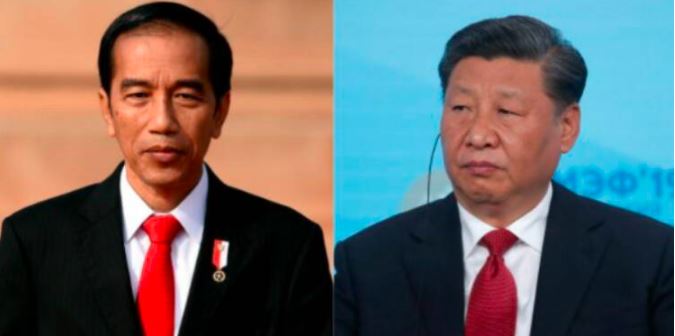Indonesia seems to know how to deal with the Chinese Communist Party and it may very well be an example for other ASEAN as well as other countries. The Indonesian government this time played its cards so well that Beijing shied away from investing in the country and its company, given they knew that they cannot exploit the terms of cooperation. China-Indonesia $2.5 billion copper deal falls apart as PT Freeport Indonesia and Tsingshan Steel break off smelter investment plan after Chinese side asked for copper concentrate discount.
The negotiations had long been rumoured to have broken down after the two companies failed to reach an agreement by the March 31 deadline, but it is only now that the government has confirmed that the project will return to its original location at a Gresik, East Java, industrial site. Analysts believe that, while the government did not actively participate in the many rounds of virtual negotiations, it presumably agreed with Freeport’s stance that the price problem was a deal-breaker. It also comes as global copper prices, which are currently hovering about US$10,000 per tonne on the London Metal Exchange, hit a new peak.
The talks between Freeport McMoran Copper & Gold (FCX) and China’s Tsingshan Steel to construct a US$2.5 billion copper smelter on the eastern Indonesian island of Halmahera have broken down, dealing a blow to Chief Maritime Minister Luhut Panjaitan, who had pushed the value-adding venture.
The Association of South-East Asian (ASEAN) countries have, for the longest time, maintained strategic neutrality when it comes to choosing between China and the USA. However, among the ASEAN countries, Indonesia has showcased that it is possible to stand with its shoulders straight, while countries like the Philippines were overtly kowtowing to China.
While countries like the Philippines have only recently started protesting against Chinese bullying, and for the longest time ignored the Chinese activities to appease Xi Jinping, Indonesia followed an entirely different approach. Indonesia under Joko Widodo has followed a mature foreign policy and as the saying goes, powerful respect powerful.
Read more: How Indonesia decided to stop fearing China and give it back to the paper dragon
Indonesia has acted like any mature and confident nation should. He played diplomacy with the CCP when it was required and opposed CCP’s expansionist designs when China overextended its hand. The recent activities further prove that Indonesia stands emboldened and will not be intimidated by China.
“No go,” director-general for minerals and coal Ridwan Djamaluddin confirmed last week, quoting from a conversation with Tony Wenas, president director of state-owned subsidiary PT Freeport Indonesia (PTFI), “It’s just that it’s not better than the plan to build at Gresik.” Djamaluddin told Asia Times that the major obstacle was Tsingshan’s demand for a 5% discount on copper concentrate from Freeport’s Grasberg mine in Papua’s Central Highlands, which the Arizona-based parent company apparently rejected out of hand.
Analysts believe that, while the government did not actively participate in the many rounds of virtual negotiations, it presumably agreed with Freeport’s stance that the price problem was a deal-breaker. While many other governments the world over do not think twice before sacrificing their private sector in the face of personal gains and monetary benefits that CCP bestows on them, Indonesia is different, and it stood by the private sector when Beijing wanted a deal favourable to them.
Freeport, eager to capitalise on soaring copper prices, expects its underground plant to be fully operational by the middle of next year, churning through 220-230,000 tonnes of ore per day. This would be comparable to the performance of the massive open pit, which closed in late 2019 after 30 years of service.
